
If you’re shooting a popular location after hours, you might have to share the space with a fellow photographer or two, but with a little common sense, it’s not difficult to work around each other. However, visit the same location in the middle of the day and you’ll often have to contend with crowds of sightseers.
If you’re intent on capturing a deserted scene, you have two options: wait and hope for a lull in the flow of day trippers, or remove each and every offender in post-processing. The former is preferable if you’re happy to wait, but during the hour we spent at Glastonbury Tor, the flow of visitors never let up, so this wasn’t a viable option.
The obvious remedy in postprocessing is to use the Clone Stamp tool or Healing Brush tool in Adobe’s Photoshop CC, or other image-editing software, to sample existing parts of the image to cover up the unwanted figures. This method is most effective if a figure partially obscures a linear section of the scene, such as a brick wall or bush. The repetitive nature of these objects allow them to be cloned with relative success. However, if the figure partially obscures something unique, such as a statue or a spindly tree, these types of objects are much more difficult to replicate.
THE MISSION
Combine multiple images using layer masks to remove crowds
Time needed 1 hour
Skill level Advanced
Kit needed
• Tripod
• Shutter release
この記事は PhotoPlus : The Canon Magazine の September 2022 版に掲載されています。
7 日間の Magzter GOLD 無料トライアルを開始して、何千もの厳選されたプレミアム ストーリー、9,000 以上の雑誌や新聞にアクセスしてください。
すでに購読者です ? サインイン
この記事は PhotoPlus : The Canon Magazine の September 2022 版に掲載されています。
7 日間の Magzter GOLD 無料トライアルを開始して、何千もの厳選されたプレミアム ストーリー、9,000 以上の雑誌や新聞にアクセスしてください。
すでに購読者です? サインイン
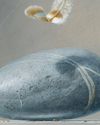
The Art of Copying Art - James Paterson shows you how to use your Canon gear to capture artwork and paintings the right way with simple camera and lighting skills
Whether you want to capture a painting like the above, digitise old prints or reproduce any kind of canvas, there's real skill in capturing artwork with your camera. Not only do you need the colours to be accurate, you also need to master the spread, angle and quality of the light to minimise glare and show the work at its best.This painting by the artist Bryan Hanlon has a wonderfully subtle colour palette. To reproduce the painting in print and digital form, it needs to be captured in the right way.
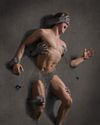
Fright night
Canon photographer and digital artist Alexander loves to craft incredible fantasy scenes with a spooky horror twist

Sharpen your shots with DPP
Sharpening a digital image also increases contrast at the edge of details

CANON ImagePrograf PRO-1100
Deeper blacks, better bronzing, greater lifespan and 5G Wi-Fi -Canon's new printer is full of new tech, says

Canon's new 'kit lens' is actually a half-price f/2.8 trinity lens!
The Canon RF 28-70mm F2.8 IS STM lacks a red ring, but borrows premium features from its L-series siblings

DREW GIBSON
Pro motorsports photographer Drew on why he hasn't (yet) switched to Canon's mirrorless system, why old-school techniques can be the most reliable, and the lessons learned from more than a decade shooting the world's biggest car brands
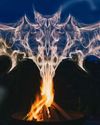
Up in smoke
Make a smoky shape in Affinity Photo and get to grips with the amazing Liquify Persona under the guidance of James Paterson

Expand your creativity with Generative Fill
Photoshop's Al-powered feature brings revolutionary new tools to image editing. James Paterson reveals all...
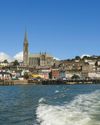
Turn your images into vintage postcards
Wish you were here? Sean McCormack explains how you can give your summer photographs a vintage postcard look
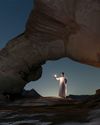
The Angel Malibu
Light painting an American movie producer in the Wadi Rum Desert in Jordan was a highly unlikely evening out for David!